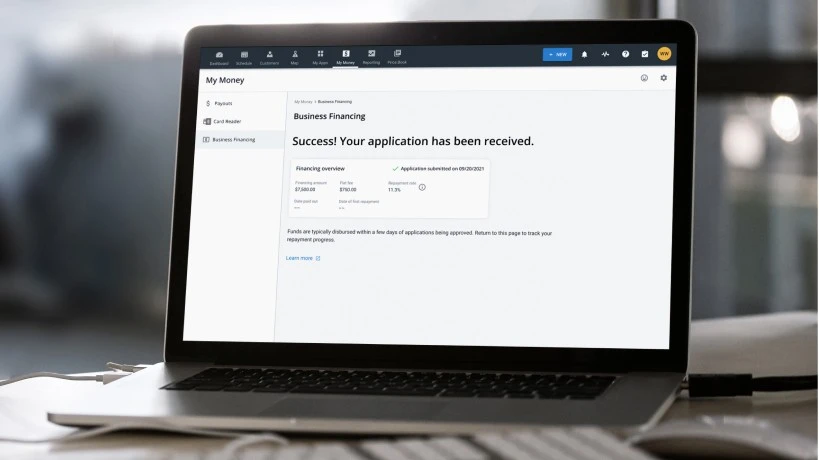
In this guide, you’ll find operations and training suggestions that will help make the selling part of a tech’s job more natural. We believe it’s first and foremost a perspective shift that you back up with positive reinforcement and proper training.
For this guide, we spoke in-depth to Nick McDonald, founder of High Growth Coach, who trains and coaches business owners, techs, and customer service specialists in the HVAC industry.
Let’s jump in.
I. Empowering Techs
Sales do not come naturally to many techs. They may be really good at the technical part of their trade, but the business side of things requires a whole different skill set they probably didn’t learn in trade school or during their apprenticeship.
Except, it’s not just a set of skills. It’s also a mindset. And business owners can make the mistake of trying to motivate techs with extra dollars or teaching sales techniques without establishing a foundation.
This foundation includes:
- Self-confidence.
- Pride in the company.
- And an understanding of why sales matter.
We’ll start with how to build this foundation.
Non-Monetary Inspiration
Build Pride and Stake in the Company
Maybe you’ve been asking yourself how to motivate your techs to sell more. But you’re asking the wrong question.
According to Nick, external motivation doesn’t last and it’s not particularly effective. But if you can inspire a tech, you can shift their perspective permanently.
Inspiration starts by giving your team believable and contagious reasons why sales matter. Give them a sense of pride in the company and why they’re an invaluable part of it. Start with your vision for the company.
Share your vision and goals for the company
When you share your vision for the company — the one that inspires you — your team will start to believe in the vision, as well. Share it often so that it sinks in and becomes real to your employees.
An important component of fostering pride in the company is giving employees a voice in it. Whether it’s in meetings, a suggestion box (you actually read), or an open office policy, folks need to feel encouraged to offer their ideas about how to make the company better.
Share your company’s progress
Be transparent about your numbers like revenue and customer retention. Share these numbers along with other successes like great reviews. Techs will feel a sense of pride when they can see a company growing and meeting its goals and knowing they’re an essential part of what’s making that happen.
So what does this have to do with sales? Altogether, the vision, goals, and progress reports help give greater meaning to sales. Each job and each sale has value because they add up to something bigger than a paycheck.
The next step is showing techs where they fit in this vision.
Build Confidence in the Tech
Share how each employee fits into this vision
Everyone wants to feel needed and important. Explain how each employee uniquely fits into your vision and how their strengths help the company grow.
Find out what inspires each employee to work harder and stay satisfied in their job and create opportunities that cater to their specific strengths and goals. It might be more money, a better position or more responsibility, etc. Perhaps one tech is competitive and simply wants to be the top performer in the company, while another tech is motivated to work toward being a supervisor.
But as they meet their goals, their motivation will change. To keep employees engaged, you need to always have another goal or prong in the company ladder for them to aspire to.
Maintain monthly or yearly reviews
Reviews give your team a specific time to reflect on what they have and have not accomplished, and specific dates to keep them motivated. Use these review sessions as opportunities to create long-term plans, including how you’re going to support them.
Nick recommends working with techs to set their own goals and targets to start with which fosters self-competitiveness and self-pride.
Make sales numbers available to everyone.
Besides individual reviews, techs need to know how they’re doing compared to others. This isn’t to shame those who are underperforming. They can’t set goals for themselves if they don’t know what’s possible.
Some companies will post sales numbers from top to bottom. Techs are often motivated to move up in rank and also not be at the bottom.
Let them make mistakes
All of this — the reviews, goal setting, transparency, etc. — should be managed with an attitude of positive reinforcement.
A tech who wants to be a manager isn’t going to get promoted and immediately excel. As your team works toward their goals, let them make mistakes and learn from them.
When someone goes through their own process and figuring out what works well, they own that final result. It’s much more powerful and long-lasting than simply being told what to do.
Now allowing your team to make mistakes doesn’t mean letting them do whatever they want. You can still set boundaries and guidelines for what’s appropriate.
One of the business owners that Nick coaches has a list of important values — things like safety and honesty —that he consistently shares with his staff. He even has a Facebook group set up for his team that uses videos and other posts to dig into what these values mean. According to this owner, of course, an employee is allowed to make a mistake with a customer. Mistakes happen! But if they break one of the values, they’re out.
Nick also encourages community contribution where possible. He explained:
“Giving back to the community you serve is a powerful thing to underpin your values and connect with both your customers and your team. Involving your team in the discussion and decision on who you are to support and why will give them additional ownership and inspiration to serve your customers better. If they know that a certain dollar amount of every sale will be gifted to people who need it, then they have more reasons to identify that serving through selling is a good thing.”
Monetary Motivation
Performance-based pay can be a great motivator, but it needs to be set up in a way that best supports your budget, as well as your company values.
Common ways to set up a commission or bonus plan include:
- Hourly rate plus % of total profit (revenue minus costs) on their tickets
- Hourly rate plus weekly or monthly bonus based on revenue goals
We recommend the latter. You can run into issues when pay is based on straight commissions.
Problems with Straight Commission Pay
Techs may resent the income differences, especially techs that have been around longer and may even be better technically. (Part of The fix here may be individual success plans we discussed above).
But a bigger issue is variations in pay that can happen based on the season or other economic variables or simply when you’re having a really slow week. This can impact the livelihood and loyalty of your pros.
It can also affect customer service. When things are slow and pros aren’t able to make a consistent paycheck, they can be tempted to push the sale in order to make up for the lost income.
Consider Bonuses Based on Revenue Goals
Instead of a straight commission plan, business coach Ellen Rohr suggests “a compensation program that rewards performance to goal, and … a bonus program that rewards performance that goes above and beyond.”
Set a revenue goal that covers your expenses (including all employees’ salaries), whatever margin you’d like to set aside, plus the cost of bonuses. Set higher goals for bigger bonuses.
Revenue goals can also be tied back to your company values and expectations. For instance, you can set a bonus level by reaching a sales number and receiving a certain number of positive reviews or going a month without being tardy or having a spotless driving record.
Reward Everyone
Consider rewarding support staff, as well when the company exceeds its weekly or monthly revenue goals.
There are also other metrics you can use to measure staff performance, such as reducing the average number of hours to complete a job, learning new skills, amount of time without an accident, etc.
Beyond commissions or bonuses, you can also offer your team incentives for bringing in new customers or leads to the company and other company objectives.
Make Sure the Customer Experience Remains the Priority
In general, pushing sales via bonuses or commissions can create a numbers mindset that detaches the sale from the customer and places less of a focus on the overall customer experience.
Per Rohr fight this by grounding your techs in the company’s values. “Communicate to your team what you will and won’t tolerate as boundaries for your honorable game of business.” Share your company values alongside your vision for the company when you address your team.
Gamify Your Goals
Turning your goals into games can decrease the pressure of meeting them.
Example: The Dartboard Review Game
Set a goal of five reviews a month per tech. For each review over that amount, the technician gets a dart and a shot at the dartboard. Each slot on the board has a value: cash, tools, etc.
Success Story: Absolute Duct and Chimney Cleaning Maintains a 38% Year over Year Revenue Increase
When technicians of Absolute Duct and Chimney Cleaning approach a customer’s home, they are trained to look for three services they can offer. Owner Joe Quero calls this “Upselling with Integrity.” They only try to sell services they believe the customer needs. “And ‘needs’ is a big deal, because we’re not going to try to sell something they don’t need,” Joe explained. Many of the services that Joe’s company provides are safety hazards which makes it easier for his techs to feel confident selling them to their customers.
“If their bathroom exhausts or the chimney looks dirty, we’re going to tell them that it needs cleaning and that can do this for them at this time.” Joe increases upsells by encouraging his techs to offer multiple services at the beginning of the appointment.
He rewards his techs well for their efforts with commissions based on each upsell. “It’s very common for one of our technicians to make 50 to $70,000 a year and 30% of that is upsells.”
Techs can also win prizes for being one of the top performers. Joe publicly posts the sales goals and the actual sales numbers and commissions of all techs in the office.
“It’s a friendly competition, but it’s still a competition. The people that are not selling are noticing that we’re not just saying, ‘He upsold the most.’ We’re actually showing everybody how much he made in upsells alone so that they say, ‘Oh shoot, I could make $1,000 a month. I want to really dictate how much I make.’”
Based on this competition, it’s common for someone at the bottom of the list one month to become a top performer the next. This transparency also allows Joe and his team managers to be able to gently ask techs what’s going on and offer coaching.
Absolute Duct and Chimney’s Upsell with Integrity focus has allowed them to increase their annual revenue by an average of 38% each year with an increase of 42% in 2019.
Useful Stats and Reports
To track a tech’s performance, Nick suggests starting with the following metrics:
- Average transaction value
- Percentage of estimates that were closed
- Number of maintenance agreements sold
Track other metrics based on your company’s specific goals.
Housecall Pro Feature Highlight: Advanced Reporting
Create Estimates in the Field:
Our advanced reporting features can help you track tech performance among other metrics you need to stay on top of your numbers.
II. Training Techs
Training your techs on how to close jobs shouldn’t be about straight selling, it should be about providing better service.
This is how your techs and your company improves your customer’s world.
“It is wrong to approach a customer with the view to close a sale — instead you should look to open a relationship. That is much less forced and less pressure on both parties,” Nick said.
Position training is learning to be a better technician. Great technicians serve their customers to the best of their abilities.
It just so happens that providing better service will lead to more sales. The following training techniques are designed to help prospects feel more comfortable and confident in the services you can provide and become loyal customers.
But first, are your technicians trainable?
Train Techs to Be Better Educators
Techs build confidence and trust with prospects by sounding like they know what they’re talking about and being able to explain things in an understandable way. In other words, they’re educators.
Explaining how your services are a good fit for a customer’s needs is part of educating them.
Encourage Your Techs to Ask Questions
Educating a customer doesn’t start with an explanation, it starts with questions. What does the customer already know and what would they like to understand? What are they worried about? What is important to them?
Asking questions helps techs get on the same page with a customer and establish a platform of trust.
Role Play Exercise: Educator Mode
Give techs a situation they face in the field. Pair them up and let them practice explaining what the fix would be.
- Ask their partner to listen for language that’s too technical.
- Have techs prioritize asking questions. Did they start with questions and end with questions before talking numbers?
Success Story: Service Detectives Increases Average Ticket by 413%
Jason Shadowen, the owner of Service Detectives, began developing his Technician Policies and Procedures Handbook in 2004. Since then, their average ticket has increased from $387 to $1600.
The handbook provides a detailed walk-through of the service call, including the order of actions to take and specific scripts to use. Much of the scripts are in the form of questions that Shadowen has been fine-tuning for 15 years.
These are questions like: “What other concerns do you have that I can address while I’m here?” — one of the last questions a tech will ask before diving into a diagnostic. And “I know this is a lot to cover in a short amount of time. What questions do you have for me?” — what a tech will ask after explaining what they’ve found.
“The customer is selling themselves, and that’s a huge part of the whole process of educating and befriending them and not being pushy,” Shadowen said. “They help to develop the relationship and, a lot of times, they’ll end up answering the questions themselves.”
Teaching techs what questions to ask is one of the biggest parts of the training process. During at least the first two months, new hires ride along on calls as assistants to get a handle on company best practices. Before they can handle service calls by themselves, Shadowen makes sure they feel comfortable not only with the technical aspects of the job and company pricing and policies but also that they have absorbed and understand how to work within the company’s core values.
Train Techs to Be More Confident
Techs need to remember they’re the expert and that their opinions matter. When they are confident in their own abilities and in the company, they will be great at providing customers attractive offers and solutions.
Focus on Value
How will your proposed solution improve your customer’s life? Is there anything that they might not be considering? Can you save them money, extend the life of their investments, improve their quality of life, solve another problem they’ve mentioned?
Focus on The Positives
Another confidence technique is focusing on what you know and are capable of instead of what you don’t know. For instance, when a tech isn’t sure what the source of the problem is or whether they can solve it in one visit, instead of focusing on those things, they can focus on what they do know, which is usually the next steps.
Role Play Exercise: Replacing Negative Language and Articulating Value
Create a scenario without an easy fix. Ask techs to explain what they would do using only positive language. Next, jump ahead to the solution. You’ve found the source of the problem and know what the fix is. Ask the tech what values they can explain to the customer for the proposed fix and what else they can offer. For instance, this could include a maintenance agreement. The practices here are to:
- Grow accustomed to using positive language by focusing on what the tech does know
- Get used to seeing any possible value and articulating it.
Handling Objections
Confident techs will also be better at handling customer objections that get in the way of closing the job.
When objections are related to costs, make sure techs fully understand the financing options available through the company.
Other objections can come from your competition when customers are gathering estimates. When techs are fully aware of how your competition operates and what sets your company apart, they can confidently express these differences to your prospects.
Here’s advice from Shani Searcy, a sales professional with Housecall Pro: “Talk respectively about your competition…your professionalism will set you apart from your competition and might just be the selling point in your customer choosing you over them.”
Training Exercise: Quiz Techs on the Competition and Financing Options
Make sure your techs know what your competition charges and what they offer and why your services are better. Make sure your techs know how to talk about your competition without being disrespectful. Also quiz techs on how your financing options work so that you know they can easily explain it to customers.
Train Techs to Be Better Customer Service Specialists
Offering VIP Customer Treatment
Sometimes the difference between making a sale and losing a sale is whether the prospect feels like more than just a job.
There are simple actions you can encourage techs to do that help customers feel uniquely valued, such as:
- Using their name several times throughout the visit.
- Finding commonalities in their family, hobbies, tastes, etc.
- Repeating words or phrases they’ve used that seem important.
- Personalizing the job by reiterating why it’s specifically important to that customer.
You can also ask techs to treat customers like friends and family. People want the best for those they care about. Here’s Nick again:
“Ideally, every visit to a customer’s home is best approached like you are visiting your mom’s house to fix something because she has asked you for your help. You would advise her what best fits her needs without pushing anything on to her. Ultimately that is what you are – a trusted advisor and consultant – there to guide and educate your customers so they can make an informed decision. That is what everybody wants.
People love to learn and love to buy. Nobody likes to be sold to.”
Role Play Exercise: Practicing Empathy
In this exercise, ask one tech to play a customer and one tech to be themselves. For the tech playing the customer, this is an opportunity to foster empathy and understand what the customer is thinking in their situation. For the tech playing themselves, this is an opportunity to practice seeing the customer as a friend.
- Ask them to include why they’d offer this same fix to their friends and family.
- Task techs to focus on value propositions and try to personalize the value they’re able to offer.
Training Exercise: Reading Facial Cues and Body Language
Ask a tech to role-play a sales conversation with you. Practice facial cues or body language and ask the tech what they think it means and how they should respond to it.
For instance, if a customer crosses their arms, they might be feeling defensive. Techs should be prepared to diffuse the situation. Streamline The Handoff to Sales Support Staff
For complicated sales or large estimates, techs may not feel comfortable or be able to close a sale during the service call. In cases like this, you can set up a process for how techs can hand off the customer to other support staff.
It’s important to not leave the customer alone to make a decision. Always have a follow-up practice in place. Ideally, you have a follow-up call or appointment scheduled before the technician leaves.
III. Hiring Trainable Techs
Successful people learn that you recruit on personality and willingness because you can teach technical skills, but you can’t teach a good attitude or trustworthiness. — Nick McDonald
Hiring works best when there’s a long-term strategy in place and you’re able to wait on people that match your values and culture.
Where do you find these people? Referrals are often the best way. Miranda Brush, Co-Owner of Steam Green, Inc recommends asking friends and other employees. Also consider asking other contractors, your contacts at supply stores or other folks within your network.
Check out other tried and true practices our pros have used to hire and retain great talent.
IV. Sales Tools
Help techs in the field by giving them quick and easy access to resources they need to close a job.
Repository of Educational and Marketing Materials
Maintain a repository of pics, videos, and other materials that can help techs explain a problem or a solution. Make it easy for techs to find these materials and share them with customers.
Add them directly to your techs’ tablets or maintain a Dropbox (or something like it) with easy-to-search folders.
Resources you might not have considered:
- Pics and videos of past work techs can use as case studies.
- Comparisons of different equipment or what your competition offers vs what you offer
- Educational resources, like how-to videos or blogs with tips, techs can share with customers that answer their questions
- Graphics that help techs explain common problems
A Printed Off or App-Based Checklist
Having a checklist of everything they’re supposed to do or ask in a service call can streamline operations.
Check out checklist apps that allow you to create recurring checklists that you can share with your team.
- Create estimate or invoice.
- Maintain service agreements.
- Collect payment, if appropriate.
- Explain next steps: invoice, etc.
- Offer business card.
- Request review.
- Add materials used to work order.
Easy-to-Use Price List
One of the best things you can do for your techs is to equip them with a prepared price list. Techs won’t have to use guesswork to provide a quote, and your sales will be more consistent, raising your revenue.
Per Nick, consistent, accessible pricing will also increase conversions. When your techs can’t provide quick quotes or estimates during a call, you’re leaving room for other companies to jump in and grab the job.
Housecall Pro Feature Highlight: Sales Proposal Tool
Create Estimates in the Field
Using our sales proposal tool, techs can build estimates on the fly. Present multiple options complete with details and pictures.
Where to Go From Here
There are many training programs and coaches like High Growth Coach equipped to help you train your technicians and customer service representatives. We polled our pros to see what they’ve used. Here are some of the programs they’ve used.
Training and coaching confident, inspired team members is an ongoing process. The same with growing your company. We encourage you to look at what action steps best match your company’s priorities and start there.








